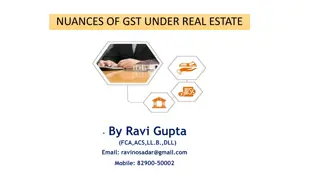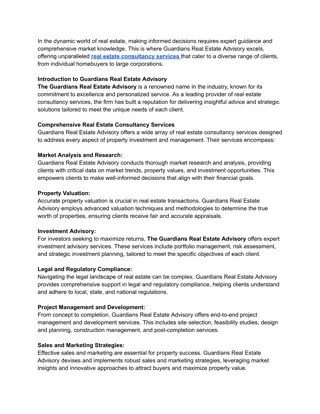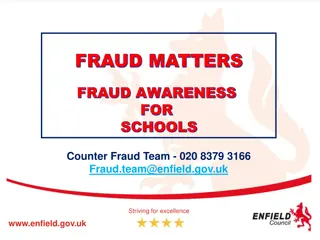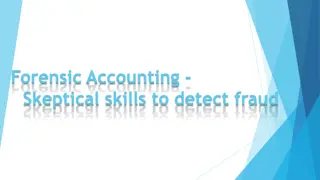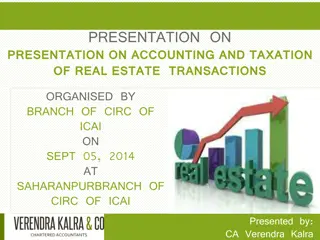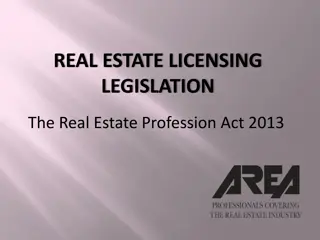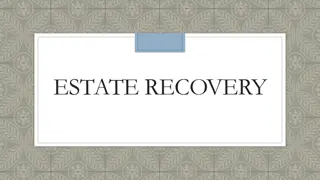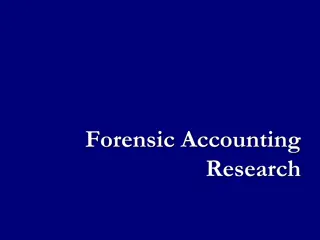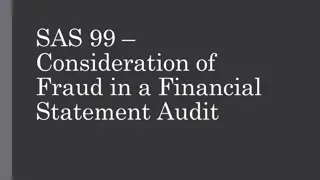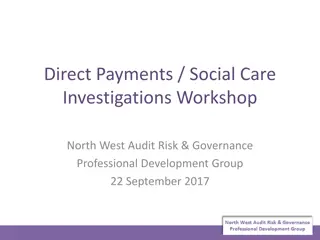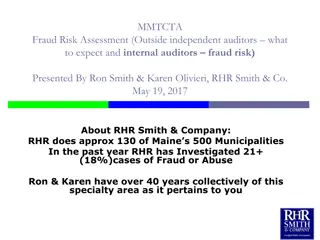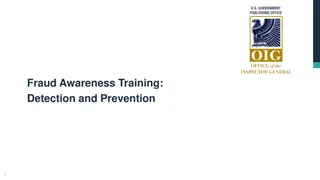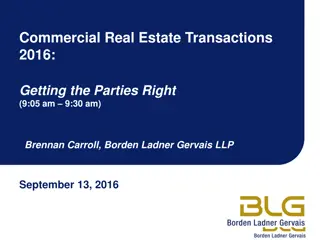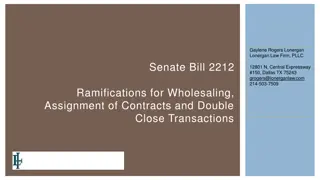Understanding Fraud in Real Estate Transactions: A Legal Perspective
Delve into the complexities of fraud in real estate transactions, particularly those involving identity theft. Explore various types of fraud, responsibilities, and liabilities of attorneys, as well as landmark legal cases that shed light on breach of contract and negligence in conveyancing. Learn about the crucial role attorneys play in safeguarding clients against risks and ensuring ethical practices in real estate dealings.
Download Presentation

Please find below an Image/Link to download the presentation.
The content on the website is provided AS IS for your information and personal use only. It may not be sold, licensed, or shared on other websites without obtaining consent from the author. Download presentation by click this link. If you encounter any issues during the download, it is possible that the publisher has removed the file from their server.
E N D
Presentation Transcript
LAW ASSOCIATION SEMINAR Fraud in Real Estate Transactions Involving Identity Theft Presented by Ashmead Ali 19thJanuary, 2018 1
INTRODUCTION Some types of fraud that can occur in real estate transactions: Stamp Duty Fraud- where the State is cheated of Stamp Duty through the understatement of the full consideration paid for real estate. Fraudulent Misrepresentation- i.e. cases where: A vendor shows a particular property to a buyer but by the actual agreement for sale and conveyance he sells and conveys another property which he owns; A vendor who intends to acquire a property enters into an agreement to sell this property before he acquires the title but does not disclose this to the purchaser; A vendor impersonates the true owner of a property (Fraud Involving Identity Theft) N.B. When someone purchases property from a fraudster , invariably the purchaser and/or his mortgagee bears the loss. 3
OUTLINE Responsibilities and Liabilities of Attorneys acting for Vendors and/or Buyers in: Breach of Contract/Negligence- Where there has been a breach of contract or duty of care by an attorney; Breach of Trust- When attorneys hold purchase moneys in a conveyancing transaction, they may be deemed to do so as trustees and will have the fiduciary obligations imposed on trustees. 4
OUTLINE Purrunsing v A'Court & Co (A Firm) [2016] EWHC 789 (Ch) (Purrunsing ); P & P Property Ltd v Owen White & Catlin LLP and another [2016] EWHC 2276 (Ch) ( P&P ); Dreamvar (UK) Limited v Mishcon De Reya (a firm) and Mary Monson Solicitors Limited [2016] EWHC 3316 (Ch) ( Dreamvar ). 5
Breach of Contract/Negligence The fundamental nature of the duty of a solicitor is the duty to exercise reasonable care and skill in the course of professional activity, whatever other obligations he may have. The standard has been described as that of an ordinarily competent solicitor. He owes a duty to his client both in contract and in tort, and he may be liable to a third person for the tort of negligence. - (CORDERY on Solicitors Issue 39, 9th Edition pg. I/301-I/303). 6
Breach of Contract/Negligence A solicitor has a duty of care to inform of any potential risk to his client that he is aware of, even where he has not been expressly instructed in relation to the risk (Credit Lyoynnais SA v Russell Jones & Walker [2002] EWHC 1310 (Ch)). 7
Breach of Contract/Negligence In normal conveyancing transactions attorneys who are acting for a seller do not in general owe to the would-be buyer a duty of care when answering inquiries before contract or the like. (Gran Gelato v Richcliff [1992] Ch 560). 8
Breach of Contract/Negligence Special Cases where where this general rule does not apply and a duty of care will be owed by the solicitors to the buyer: Where the solicitors stepped outside their role as solicitors for their client and accepted a direct responsibility to the lender. (Gran Gelato v Richcliff [1992] Ch 560); A vendor s attorney will be held to owe a duty of care to the purchaser where there are special circumstances which result in him accepting a direct responsibility to the purchaser to take reasonable care to ascertain the identity of the vendor or to ensure that he is the true owner of the property being sold; 9
Breach of Contract/Negligence In Purrunsing the Court held that the buyer s solicitor was liable to the buyer for breach of contract and negligence because he failed to advise his client, the buyer, that he had information that posed a risk to the client. 10
Breach of Contract/Negligence The buyer s solicitors asked the seller s solicitors to confirm they were familiar with the sellers and would verify that they are the sellers and check ID to support same. The seller s solicitors responded in the following terms: As explained to you over the telephone, prior to being approached to act on the sale we have no personal knowledge of Mr Dawson, but we confirm that we have met him in person and have seen his passport (and retain a copy of the photo page) together with utility bills etc. showing his UK address as notified to us. The court held that the buyer s solicitor ought to have known that the answers were unsatisfactory, and ought to have told the purchaser of the unsatisfactory responses received and advised the purchaser not to proceed with the transaction until satisfactory responses had been received. 11
Trust When an attorney at law engaged in real estate transactions holds money for a purchaser of property, he is regarded as a trustee and as such will have the fiduciary obligations associated with a trustee.(Purrunsing); If he pays out the purchase money to a fraudster who is impersonating the true owner of the property this would amount to a breach of trust and he may be liable for the loss suffered by the purchaser; The attorney would not necessarily be liable to his client (the purchaser) because the Trustee Ordinance Ch. 8 No.3 at section 62 gives the court a discretion to grant the attorney relief where he has acted honestly and reasonably and ought fairly to be excused for the breach of trust. (same as s.61 of the English Trustee Act) 12
Trust As stated by the judge in Purrunsing at paragraph 38(i): The reasonableness test that is applied to a solicitor who parts with completion monies without obtaining completion is necessarily a high one because of the need to interpret s.61 consistently with equity s high expectation of a trustee discharging fiduciary obligations It is therefore one which requires the solicitor concerned to have acted with exemplary professional care and efficiency and to be careful, conscientious and thorough though the test remains one of reasonableness not perfection 13
Duties of Attorneys acting for Vendors and Purchasers: M. Shahid FightingWords Law Society Gazette (9th June, 2017): In Purrunsing the seller s solicitor was unaware that the seller was not in fact the true owner of a property and purchase monies were transferred. Both sets of solicitors in the transaction were found to be in breach of trust: the duty not to release purchase monies before legal completion is an absolute one, and as the relevant property transfer deed was forged, legal completion had not in fact taken place 14
Duties of Attorneys acting for Vendors and Purchasers: M. Shahid FightingWords Law Society Gazette (9th June, 2017): Both firms sought relief under section 61 of the Trustee Act 1925 [s.62 of T&T s Trustees Ordinance], a statutory provision that allows a court to relieve a trustee from liability where they have acted honestly and reasonably and ought fairly to be excused for the breach of trust . His Honour Judge Pelling refused to grant relief. The supposed seller of the property had provided an address different to that of the property and to that of the alternative service address as stated on the Land Registry register, and the seller s solicitor had made no proper attempt to 15
Duties of Attorneys acting for Vendors and Purchasers: M. Shahid FightingWords Law Society Gazette (9th June, 2017): carry out risk-based due diligence and comply with anti-money laundering regulations . Importantly, no documentation was obtained linking the seller to the property. Similarly, the buyer s solicitor should have been more alert and not satisfied with the answer they received on whether the seller was entitled to sell the property, and they should have communicated this concern to their client. Both sets of solicitors were found to bear equal responsibility for the loss suffered by the buyer. 16
Duties of Attorneys acting for Vendors and Purchasers: In Purrunsing and other recent English cases on real estate fraud involving identity theft, the Courts have looked to the observance by solicitors of the English Proceeds of Crime Act and associated anti-money laundering regulations (which are designed to combat money laundering and terrorism financing) as a key factor in determining whether solicitors have acted reasonably, and, as a consequence, ought possibly to be excused for their breach of trust. Attorneys in Trinidad and Tobago are required to observe similar standards under our Proceeds of Crime Act Chapter 11:27 (POCA) and Anti Money Laundering guidelines issued by the Financial Intelligence Unit. As noted in Purrunsing, the Court held that the solicitors did not act reasonably because they failed to adopt a risk based approach to client due diligence as required by their POCA. 17
Duties of Attorneys acting for Vendors and Purchasers: The court found that if the solicitors had adopted a risk based approach several red flags based on the facts of the case would have alerted them to the possibility of fraud. These were: the property was vacant; the property was not charged (mortgaged); the property was of a reasonably high value; the purported seller was based abroad; the purported seller was pressing for an unusually quick completion; 18
Duties of Attorneys acting for Vendors and Purchasers: no instructions were sought by the seller s solicitor as to why his residential address supplied was not the same address as the sale property; no documentation was asked for or supplied showing the link between the fraudster and the property including utility bills. the purported seller failed to provide any documentation actually linking him to the property; the purported seller denied that any building work had been carried out at the property during his period of ownership, and this was inconsistent with the Local Search result; and the purported seller had aborted an earlier potential sale when he had been pressed for information about his employer. 19
Duties of Attorneys acting for Vendors and Purchasers: There was no allegation or evidence of dishonesty by the solicitors. However, the fact that the seller s solicitor failed to carry out money laundering/identity checks in accordance with reasonable practice; and the fact that the buyer s solicitor failed to report gaps and discrepancies in the information provided by and about the purported seller and about the property*, meant that neither solicitor had acted reasonably. *i.e. the buyer s solicitor was found to be in breach of contract and negligent [see slides 10 and 11] 20
Duties of Attorneys acting for Vendors and Purchasers: M. Shahid FightingWords Law Society Gazette (9th June, 2017): The decision in Purrunsing contrasted with that of P&P later the same year, with the purchaser (P&P) failing in its claim against the fraudulent seller s solicitor, as well as the estate agent. Similar to Purrunsing, P&P involved a vacant property, which a fraudulent seller claimed he owned. When the true owner discovered what had happened, P&P brought a claim against Owen White & Catlin (OWC) 21
Duties of Attorneys acting for Vendors and Purchasers: M. Shahid FightingWords Law Society Gazette (9th June, 2017): as well as the estate agent... Robin Dicker QC, sitting as a deputy High Court judge, ruled that the solicitor checks were designed to reduce the risk of fraud, but could not eliminate it The court in P&P distinguished Purrunsing on the basis that different versions of the Law Society s Code for Completion by post were used in the two cases: in Purrunsing, the 1998 version was used, which requires the funds being held on trust until satisfactory completion, whereas in P&P, the less stringent 22
Duties of Attorneys acting for Vendors and Purchasers: M. Shahid FightingWords Law Society Gazette (9th June, 2017): 2011 version was used, which contains wording to the effect that if completion takes place straight away, then the completion monies are not held on trust by the seller s solicitor. While the decision in P&P was welcomed by conveyancing solicitors for its pragmatic stance, their relief proved short-lived: not only has leave to appeal been granted, but a few months later, came a decision which has seemingly placed greater responsibility on a buyer s solicitor to verify the seller s identity 23
Duties of Attorneys acting for Vendors and Purchasers: M. Shahid FightingWords Law Society Gazette (9th June, 2017): The decision in Dreamvar involved a successful claim against City firm Mishcon de Reya by a client purchaser. Dreamvar based its claim against Mishcon on negligence for failing to seek an undertaking from the seller s solicitor that it had taken reasonable steps to establish the client s identity, as well as failing to identify features of the transaction which suggested an increased risk of fraud. The second part of the claim was based on breach of trust 24
Duties of Attorneys acting for Vendors and Purchasers: M. Shahid FightingWords Law Society Gazette (9th June, 2017): Separately, the purchaser also brought a claim against Mary Monson, the seller s solicitor, for negligence, breach of warranty of authority and breach of an undertaking that it had authority from the real owner of the property. The court dismissed all allegations of negligence against Mishcon. In particular, it rejected the argument for an undertaking, holding that this was contrary to standard practice in the profession. However, Deputy High Court Judge, David Railton QC, did allow the claim for breach of trust against Mishcon, holding that it was an implied term of the 25
Duties of Attorneys acting for Vendors and Purchasers: M. Shahid FightingWords Law Society Gazette (9th June, 2017): retainer that it would only release purchase monies on completion of a genuinepurchase . Furthermore, it was not entitled to relief from breach under section 61 of the Trustees Act. 26
Duties of Attorneys acting for Vendors and Purchasers: In Dreamvar, the judge stated as follows: the effect of the breach of trust on the buyer had been disastrous. It lost the purchase price, and in return received nothing. It did not have insurance, or any ability (or knowledge) to enable it to self-insure against the risk of fraud, of which Mr Vardar (the buyer s sole shareholder and director) was unaware; Mischon was insured for events such as the one in this matter and its insurance cover was sufficient to cover in full the loss suffered; 27
Duties of Attorneys acting for Vendors and Purchasers: In terms of balancing the relative effects or consequences of the breach of trust, it was apparent that Mischon (with or without insurance) was far better able to meet or absorb the loss than the buyer; Although it was not unreasonable for Mischon not to have advised the buyer about the risk of fraud, or to have sought greater protection for the buyer against that risk (such as further undertakings), it was also not irrelevant that Mischon was necessarily far better placed to consider, and as far as possible achieve (a matter not in the event tested), greater protection for the buyer against the risk which in fact occurred; 28
Duties of Attorneys acting for Vendors and Purchasers: The buyer had no recourse against the seller s solicitor, and (it appeared) no practical likelihood of either tracing or making any recovery from the fraudster. As a result, the only practical remedy it had was against Mischon. In the case against the seller s solicitor, the court held that the seller s solicitors (MMS) also held the completion moneys on trust for the buyer but was permitted to release the moneys to its client for the purpose of completion even though there was no actual completion of a genuine purchase. As such, the court found that the seller s solicitors were not in breach of trust. This case has been widely criticised. Although the Court did not find fault with Mishcon s conduct, it still used its discretion to hold them liable. The Law Society is considering intervening in the appeal. 29
Local Practice: Trust Common in England that the purchase money in property sales are paid to the buyer s solicitors who would hold the funds in their clients account and at completion pay them to the vendor s solicitors who would then hold the funds in their clients account before disbursing to the vendor. In both cases therefore, the solicitors were clearly trustees. Trinidad and Tobago- the current practice is different so that (with few exceptions*, the purchase money (or loan money) is not held by either the buyer s attorneys or the vendor s attorneys but rather paid by the buyer or his lender directly to the vendor (or his mortgagee where appropriate) attorneys would not usually be trustees. Question: Would this result in the vendor s attorney and the purchaser s attorney being considered as trustees? 30
GUIDELINES FOR COMBATTING REAL ESTATE FRAUD INVOLVING IDENTITY THEFT 31
GUIDELINES FOR COMBATTING REAL ESTATE FRAUD INVOLVING IDENTITY THEFT 1.Property Owners Persons who own real estate, especially vacant land should visit their properties regularly to see if there are unauthorised persons in occupation. 2. Pre-Sale Signs Real estate agents should place a sign on the property stating For Sale and give their contact information on properties being sold. 32
GUIDELINES FOR COMBATTING REAL ESTATE FRAUD INVOLVING IDENTITY THEFT 3. Visits Real estate agents, purchasers, and valuation surveyors should visit the property being sold and where possible speak to neighbours who can give information on the identity of vendor. Mortgagees should also have their site inspectors do so. 4. After Sale Signs Immediately upon the execution of the agreement for sale of property the real estate agent or the purchaser should place a sign on the property stating that the property has been sold and giving his/her contact information. 33
GUIDELINES FOR COMBATTING REAL ESTATE FRAUD INVOLVING IDENTITY THEFT 5. Anti-Money Laundering Guidelines As noted, attorneys engaged in real estate transactions are urged to observe the Anti-Money Laundering Guidelines of the Trinidad and Tobago Financial Intelligence Unit (FIU) and adopt a risk based customer due diligence. 34
GUIDELINES FOR COMBATTING REAL ESTATE FRAUD INVOLVING IDENTITY THEFT 6. Identification (continued) Due Diligence (English Money Laundering Regulations): Reg 5(a) identifying the customer and verifying the customer s identity on the basis of documents, data or information obtained from a reliable and independent source and by Reg 5(c) as obtaining information on the purpose and intended nature of the business relationship. Repeated: paragraphs 3.1 and 3.3 of the Financial Intelligence Unit s Customer Due Diligence Guide No. 1 of 2011 and they are based on the Trinidad and Tobago POCA and Financial Obligations Regulations 2010. 35
GUIDELINES FOR COMBATTING REAL ESTATE FRAUD INVOLVING IDENTITY THEFT Identification (continued) Buyers and their attorneys should verify the bona fides of vendors (and real estate agents) who offer to sell them real estate. Unless they know a vendor and real estate agent personally they should ask them to produce two forms of government issued picture IDs, one of which should be a National ID Card or Passport. Identification documents should be checked for their date of issue which should not be a weekend day or public holiday. 36
GUIDELINES FOR COMBATTING REAL ESTATE FRAUD INVOLVING IDENTITY THEFT Identification (continued) In the case of vendors who are companies, buyers should have a search done of the company at the Companies Registry and ask for one or more directors to provide similar government issued IDs. Established corporate property developers and public companies may be excepted. 7. Bank Reference Letters It is also recommended that vendors should be asked to produce bank reference letters certifying that they are known to the bank. 8. Swearing of Affidavits in presence of Commissioner Attorneys and Commissioners of Affidavit should ensure that the witness proving execution of the deeds by the vendor swears the affidavit in the presence of the Commissioner and provide similar forms of ID (Section 11 of the Registration of Deeds Act Ch.19:06). 37
GUIDELINES FOR COMBATTING REAL ESTATE FRAUD INVOLVING IDENTITY THEFT 9. Google Name of Vendor It is also good practice to Google the names of vendors. This can sometimes turn up information useful in identifying vendors and their history . 38
GUIDELINES FOR COMBATTING REAL ESTATE FRAUD INVOLVING IDENTITY THEFT Trinidad and Tobago Anti-Money Laundering and Counter Financial Terrorism Guidelines Red Flags: (1) Excessively obstructive or secretive client a) Client appears to have dealings with several Attorneys-at-Law for no apparent reason. b) Client is accompanied and watched. c) Client presents confusing and inconsistent details about the transaction. d) Client over-justifies or explains the transaction. e) Client is secretive and reluctant to meet. f) Client is nervous, not in keeping with the transaction. 39
GUIDELINES FOR COMBATTING REAL ESTATE FRAUD INVOLVING IDENTITY THEFT Excessively obstructive or secretive client (continued) g) Client s mobile, home or business telephone number has been disconnected or there is no such number when an attempt is made to contact client. h) Client insists that a transaction be done inordinately quickly. i) Client uses aliases and a variety of similar but different addresses. 40
GUIDELINES FOR COMBATTING REAL ESTATE FRAUD INVOLVING IDENTITY THEFT Excessively obstructive or secretive client (continued) j) Client does not want correspondence sent to home address and uses a Post Office Box or General Delivery address, instead of a street address when this is not the norm for that area/type of business. k) Client offers you money, gratuities or unusual favours for the provision of services. l) Transaction seems to be inconsistent with the client s apparent financial standing or usual pattern of activities. 41
GUIDELINES FOR COMBATTING REAL ESTATE FRAUD INVOLVING IDENTITY THEFT (2) Transactions involve unusual levels of funds or cash Client seeks to conduct large transactions with cash. (3) Client is reluctant or vague in relation to identity documents a) Client produces seemingly false identification or identification that appears to be counterfeited, altered or inaccurate. b) Client refuses to produce personal identification documents or only submits copies of personal identification documents. c) Client wants to establish identity using something other than his or her personal identification documents. 42
GUIDELINES FOR COMBATTING REAL ESTATE FRAUD INVOLVING IDENTITY THEFT Client is reluctant or vague in relation to identity documents (continued): d) Client refuses or appears particularly reluctant, or delays to provide the information requested without reasonable explanation. e) Client s area of residence is not consistent with other profile details, such as employment. f) Client provides an address that is vague or unusual e.g., an accommodation agency, a professional registered office or a trading address. g) Client s supporting documentation lacks important details such as 43 address and phone number.
GUIDELINES FOR COMBATTING REAL ESTATE FRAUD INVOLVING IDENTITY THEFT Client is reluctant or vague in relation to identity documents (continued): h) There are inordinate delays in client presenting corporate documents. i) All identification presented is foreign or cannot be checked for some reason. j) All identification documents presented appear new or have recent issue dates. k) Identification documents are out of date. 44
GUIDELINES FOR COMBATTING REAL ESTATE FRAUD INVOLVING IDENTITY THEFT (4) Transactions and clients outside of Trinidad and Tobago Client and other parties to the transaction have no apparent ties to Trinidad and Tobago. (5) Financial Intelligence Unit (FIU)- Registration Attorneys, vendors and buyers should seek confirmation that attorneys- at-law, real estate agents and property developers or parties engaged in the business or selling real estate are registered with the FIU. 45
GUIDELINES FOR COMBATTING REAL ESTATE FRAUD INVOLVING IDENTITY THEFT (6) Agreements for Sale (a) Buyers should seek independent legal advice before entering into an agreement to purchase property. (b) A standard term in sale agreements should provide for deposits to be held by a stakeholder in a trust account. 46
GUIDELINES FOR COMBATTING REAL ESTATE FRAUD INVOLVING IDENTITY THEFT (7) Execution of Deeds Buyers are entitled to require that the execution of the deed of conveyance, lease or assignment be attested (witnessed) by someone they appoint at their own cost. This is a useful right to exercise particularly where the vendor is a stranger. The appointed person can seek to verify the bona fides of the vendor and his/her attorney. Attorneys-at-Law should advise their clients accordingly. 47
GUIDELINES FOR COMBATTING REAL ESTATE FRAUD INVOLVING IDENTITY THEFT (8) Execution Abroad (a) When deeds conveying property or granting power of attorney are executed abroad the oath of the witness proving the same must be sworn by him/her in the presence of and certified by one of the following officials: A Trinidad and Tobago diplomatic agent or consular officer; or A Judge of a Court of record; or, The Mayor of any City, Town or Borough; or, A Notary Public 48
GUIDELINES FOR COMBATTING REAL ESTATE FRAUD INVOLVING IDENTITY THEFT b) The risk of imposters executing deeds or certifying oaths is higher when a deed is executed abroad because oftentimes the vendor, the witness and the official will not be known to the buyer. Accordingly, it is advisable that buyers appoint someone to be present for the execution of the deed so that the witness can seek to verify the bona fides of the persons mentioned above. c) Where this is not possible the buyer should ask the vendor to give the name, address, telephone and email address of the witness and the notary public or other official who would certify the oath of the person who witnessed the execution of the deed so that the buyer or his attorney can independently contact them and confirm their identities. 49
GUIDELINES FOR COMBATTING REAL ESTATE FRAUD INVOLVING IDENTITY THEFT d) In so far as the officials are concerned, the risk is reduced somewhat where the official is a Trinidad and Tobago diplomatic agent or consular officer because it would be easy to confirm the existence of such official and communicate with him/her. e) However, in most cases, the official may very likely not know the vendor or buyer and witness personally and can also be duped. Further, where the deed itself is not executed before the relevant official, he or she would not be able to seek any form of identification of the vendor although, of course, the old problem of falsified identification documents is still an issue! f) The least risky option is for the overseas vendor to come to Trinidad and Tobago to execute the deed and close the transaction. 50









